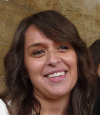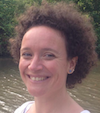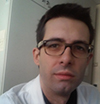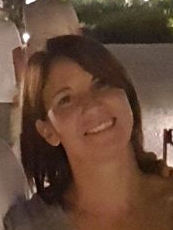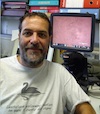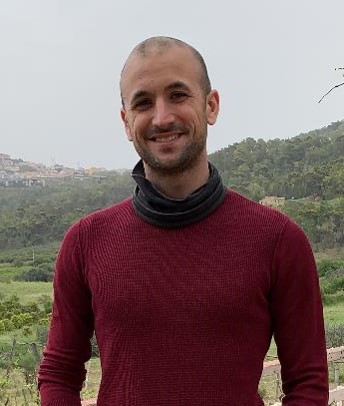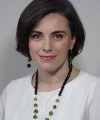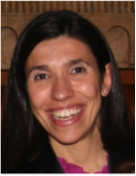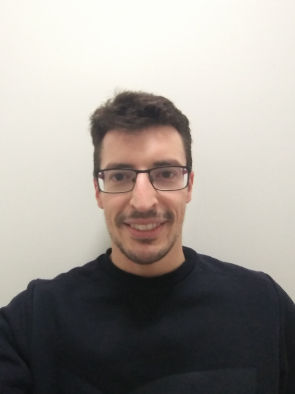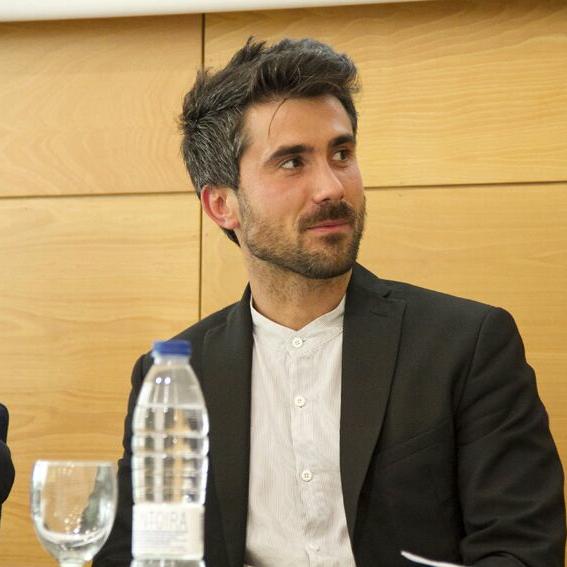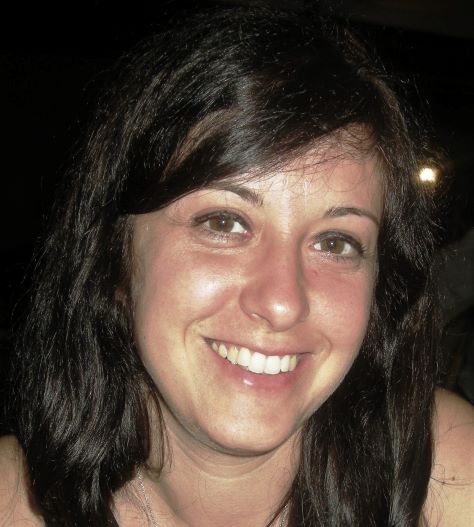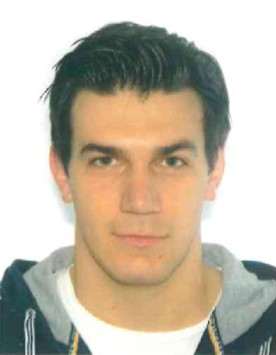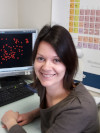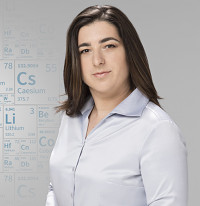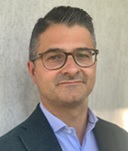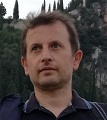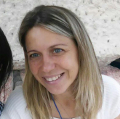Studying at the University of Verona
Here you can find information on the organisational aspects of the Programme, lecture timetables, learning activities and useful contact details for your time at the University, from enrolment to graduation.
Academic calendar
The academic calendar shows the deadlines and scheduled events that are relevant to students, teaching and technical-administrative staff of the University. Public holidays and University closures are also indicated. The academic year normally begins on 1 October each year and ends on 30 September of the following year.
Course calendar
The Academic Calendar sets out the degree programme lecture and exam timetables, as well as the relevant university closure dates..
| Period | From | To |
|---|---|---|
| Semester 1 | Oct 3, 2022 | Jan 27, 2023 |
| Semester 2 | Mar 6, 2023 | Jun 16, 2023 |
| Session | From | To |
|---|---|---|
| Sessione invernale d'esame | Jan 30, 2023 | Mar 3, 2023 |
| Sessione estiva d'esame | Jun 19, 2023 | Jul 31, 2023 |
| Sessione autunnale d'esame | Sep 4, 2023 | Sep 29, 2023 |
| Session | From | To |
|---|---|---|
| Sessione di laurea estiva | Jul 13, 2023 | Jul 13, 2023 |
| Sessione di laurea autunnale | Oct 9, 2023 | Oct 9, 2023 |
| Sessione autunnale di laurea - dicembre | Dec 4, 2023 | Dec 4, 2023 |
| sessione invernale | Mar 6, 2024 | Mar 6, 2024 |
| Period | From | To |
|---|---|---|
| Ponte Festa di tutti i Santi | Oct 31, 2022 | Nov 1, 2022 |
| Ponte dell'Immacolata Concezione | Dec 8, 2022 | Dec 9, 2022 |
| Vacanze natalizie | Dec 23, 2022 | Jan 8, 2023 |
| Vacanze di Pasqua | Apr 7, 2023 | Apr 10, 2023 |
| Festa della Liberazione | Apr 24, 2023 | Apr 25, 2023 |
| Festa dei Lavoratori | May 1, 2023 | May 1, 2023 |
| Festa del Santo Patrono | May 21, 2023 | May 21, 2023 |
| Festa della Repubblica | Jun 2, 2023 | Jun 2, 2023 |
| Chiusura estiva | Aug 14, 2023 | Aug 19, 2023 |
Exam calendar
Exam dates and rounds are managed by the relevant Science and Engineering Teaching and Student Services Unit.
To view all the exam sessions available, please use the Exam dashboard on ESSE3.
If you forgot your login details or have problems logging in, please contact the relevant IT HelpDesk, or check the login details recovery web page.
Should you have any doubts or questions, please check the Enrollment FAQs
Academic staff
 elisa.artegiani@univr.it
elisa.artegiani@univr.it
 emil.milan@univr.it
emil.milan@univr.it
 chiara.nardon@univr.it
chiara.nardon@univr.it
 claudio.tomazzoli@univr.it
claudio.tomazzoli@univr.it
 franco.zivcovich@univr.it
franco.zivcovich@univr.it
Study Plan
The Study Plan includes all modules, teaching and learning activities that each student will need to undertake during their time at the University.
Please select your Study Plan based on your enrollment year.
1° Year
| Modules | Credits | TAF | SSD |
|---|
2° Year activated in the A.Y. 2023/2024
| Modules | Credits | TAF | SSD |
|---|
1 module between the following3° Year It will be activated in the A.Y. 2024/2025
| Modules | Credits | TAF | SSD |
|---|
1 module among the following1 module among the following1 module among the following| Modules | Credits | TAF | SSD |
|---|
| Modules | Credits | TAF | SSD |
|---|
1 module between the following| Modules | Credits | TAF | SSD |
|---|
1 module among the following1 module among the following1 module among the followingLegend | Type of training activity (TTA)
TAF (Type of Educational Activity) All courses and activities are classified into different types of educational activities, indicated by a letter.
Molecular Biology (2023/2024)
Teaching code
4S004476
Teacher
Coordinator
Credits
9
Language
Italian
Scientific Disciplinary Sector (SSD)
BIO/11 - MOLECULAR BIOLOGY
Period
Semester 2 dal Mar 4, 2024 al Jun 14, 2024.
Courses Single
Authorized with reserve
Learning objectives
The main goal of this course is to provide the students with the basic knowledge of the composition, structure and interactions of cellular molecules, such as nucleic acids and proteins, that carry out essential biological processes in eukaryotic and prokaryotic cells.
Prerequisites and basic notions
Basic knowledge of cell biology and biochemistry
Program
DNA AND CHROMSOMES
The structure and function of DNA
Chromosomal DNA and its packaging in the chromatin fiber
Chromatin structure and function
The global structure of chromosomes
DNA REPLICATION, REPAIR AND RECOMBINATION
DNA replication mechanisms
The initiation and completion of DNA replication in chromosomes
DNA repair
Homologous recombination
Transposition
HOW CELLS READ THE GENOME: FROM DNA TO PROTEIN
From DNA to RNA
From RNA to protein
Protein folding, degradation and the ubiquitin-proteasome system
CONTROL OF GENE EXPRESSION
Control of transcription by sequence specific DNA-binding proteins
Transcription regulators
Molecular genetic mechanisms that create and maintain specialized cell types
Mechanisms reinforcing cell memory in plants and animals
Post-transcriptional controls
Regulation of gene expression by non-coding RNAs
ANALYZING CELLS AND MOLECULES
Isolating cells and growing them in culture
Analyzing and manipulating DNA
Studying gene expression and function
CELL SIGNALING
Principles of cell signaling
Signaling through G-protein-coupled receptors
Signaling through enzyme-coupled receptors
Alternative signalling routes in gene regulation
THE CELL CYCLE
Overview of the cell cycle
The cell cycle control system
S-phase
Mitosis
Cytokinesis
Meiosis
Control of cell division and cell growth
CANCER
Cancer as a microevolutionary process
Cancer-critical genes: oncogenes and tumor suppressors
Cancer therapy
DISCUSSION OF TOPICS CHOSEN FROM THE LITERATURE ON MOLECULAR BIOLOGY
Bibliography
Didactic methods
The course consists of theoretical classes and journal clubs.
Learning assessment procedures
The topics covered will be evaluated in a single exam. The exam consists of a written test (three open-ended questions) which aims to assess the level of knowledge of the topics covered during the course.
Evaluation criteria
The degree of knowledge of molecular biology will be evaluated
Criteria for the composition of the final grade
To each question is assigned a maximum score of 10 points
Exam language
Italiano
Type D and Type F activities
Le attività formative di tipologia D sono a scelta dello studente, quelle di tipologia F sono ulteriori conoscenze utili all’inserimento nel mondo del lavoro (tirocini, competenze trasversali, project works, ecc.). In base al Regolamento Didattico del Corso, alcune attività possono essere scelte e inserite autonomamente a libretto, altre devono essere approvate da apposita commissione per verificarne la coerenza con il piano di studio. Le attività formative di tipologia D o F possono essere ricoperte dalle seguenti attività.
1. Insegnamenti impartiti presso l'Università di Verona
Comprendono gli insegnamenti sotto riportati e/o nel Catalogo degli insegnamenti (che può essere filtrato anche per lingua di erogazione tramite la Ricerca avanzata).
Modalità di inserimento a libretto: se l'insegnamento è compreso tra quelli sottoelencati, lo studente può inserirlo autonomamente durante il periodo in cui il piano di studi è aperto; in caso contrario, lo studente deve fare richiesta alla Segreteria, inviando a carriere.scienze@ateneo.univr.it il modulo nel periodo indicato.
2. Attestato o equipollenza linguistica CLA
Oltre a quelle richieste dal piano di studi, per gli immatricolati dall'A.A. 2021/2022 vengono riconosciute:
- Lingua inglese: vengono riconosciuti 3 CFU per ogni livello di competenza superiore a quello richiesto dal corso di studio (se non già riconosciuto nel ciclo di studi precedente).
- Altre lingue e italiano per stranieri: vengono riconosciuti 3 CFU per ogni livello di competenza a partire da A2 (se non già riconosciuto nel ciclo di studi precedente).
Tali cfu saranno riconosciuti, fino ad un massimo di 6 cfu complessivi, di tipologia F se il piano didattico lo consente, oppure di tipologia D. Ulteriori crediti a scelta per conoscenze linguistiche potranno essere riconosciuti solo se coerenti con il progetto formativo dello studente e se adeguatamente motivati.
Gli immatricolati fino all'A.A. 2020/2021 devono consultare le informazioni che si trovano qui.
Modalità di inserimento a libretto: richiedere l’attestato o l'equipollenza al CLA e inviarlo alla Segreteria Studenti - Carriere per l’inserimento dell’esame in carriera, tramite mail: carriere.scienze@ateneo.univr.it
3. Competenze trasversali
Scopri i percorsi formativi promossi dal TALC - Teaching and learning center dell'Ateneo, destinati agli studenti regolarmente iscritti all'anno accademico di erogazione del corso https://talc.univr.it/it/competenze-trasversali
Modalità di inserimento a libretto: non è previsto l'inserimento dell'insegnamento nel piano di studi. Solo in seguito all'ottenimento dell'Open Badge verranno automaticamente convalidati i CFU a libretto. La registrazione dei CFU in carriera non è istantanea, ma ci saranno da attendere dei tempi tecnici.
4. CONTAMINATION LAB
Il Contamination Lab Verona (CLab Verona) è un percorso esperienziale con moduli dedicati all'innovazione e alla cultura d'impresa che offre la possibilità di lavorare in team con studenti e studentesse di tutti i corsi di studio per risolvere sfide lanciate da aziende ed enti. Il percorso permette di ricevere 6 CFU in ambito D o F. Scopri le sfide: https://www.univr.it/clabverona
ATTENZIONE: Per essere ammessi a sostenere una qualsiasi attività didattica, incluse quelle a scelta, è necessario essere iscritti all'anno di corso in cui essa viene offerta. Si raccomanda, pertanto, ai laureandi delle sessioni di dicembre e aprile di NON svolgere attività extracurriculari del nuovo anno accademico, cui loro non risultano iscritti, essendo tali sessioni di laurea con validità riferita all'anno accademico precedente. Quindi, per attività svolte in un anno accademico cui non si è iscritti, non si potrà dar luogo a riconoscimento di CFU.
5. Periodo di stage/tirocinio
Oltre ai CFU previsti dal piano di studi (verificare attentamente quanto indicato sul Regolamento Didattico): qui informazioni su come attivare lo stage.
Insegnamenti e altre attività che si possono inserire autonomamente a libretto
| years | Modules | TAF | Teacher |
|---|---|---|---|
| 3° | LaTeX Language | D |
Enrico Gregorio
(Coordinator)
|
| 3° | Python programming language | D |
Carlo Combi
(Coordinator)
|
| 3° | History and Didactics of Geology | D |
Guido Gonzato
(Coordinator)
|
Career prospects
Module/Programme news
News for students
There you will find information, resources and services useful during your time at the University (Student’s exam record, your study plan on ESSE3, Distance Learning courses, university email account, office forms, administrative procedures, etc.). You can log into MyUnivr with your GIA login details: only in this way will you be able to receive notification of all the notices from your teachers and your secretariat via email and soon also via the Univr app.
Graduation
List of theses and work experience proposals
| theses proposals | Research area |
|---|---|
| Studio delle proprietà di luminescenza di lantanidi in matrici proteiche | Synthetic Chemistry and Materials: Materials synthesis, structure-properties relations, functional and advanced materials, molecular architecture, organic chemistry - Colloid chemistry |
| Multifunctional organic-inorganic hybrid nanomaterials for applications in Biotechnology and Green Chemistry | Synthetic Chemistry and Materials: Materials synthesis, structure-properties relations, functional and advanced materials, molecular architecture, organic chemistry - New materials: oxides, alloys, composite, organic-inorganic hybrid, nanoparticles |
| Dinamiche della metilazione del DNA e loro contributo durante il processo di maturazione della bacca di vite. | Various topics |
| Risposte trascrittomiche a sollecitazioni ambientali in vite | Various topics |
| Studio delle basi genomico-funzionali del processo di embriogenesi somatica in vite | Various topics |
Attendance
As stated in the Teaching Regulations for the A.Y. 2022/2023, attendance is not mandatory. However, professors may require students to attend lectures for a minimum of hours in order to be able to take the module exam, in which case the methods that will be used to check attendance will be explained at the beginning of the module.


 +39 045 802 7949
+39 045 802 7949
